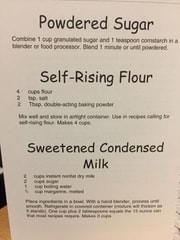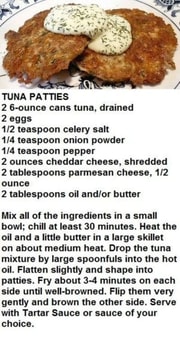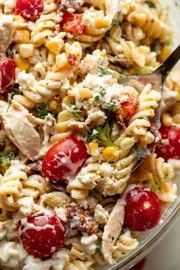Expert unveils tricks supermarkets use to make you overspend
- Replies 13
As we navigate the aisles of our local supermarkets, we're often unaware of the subtle yet powerful tactics at play, designed to encourage us to spend more of our hard-earned cash.
For many Australian seniors, a trip to the grocery store is a routine part of life, but it can also be a source of financial stress, especially when living on a fixed income.
With the cost of living on the rise and grocery bills becoming a significant concern, it's crucial to understand the strategies supermarkets use to influence our spending habits.
The average weekly grocery bill in Australia can vary widely, with some households spending upwards of $210, according to Finder's consumer sentiment tracker.
This financial pressure is compounded by the country's food inflation rate of 3.8 per cent.
However, it's not just inflation that's impacting our wallets; supermarkets were reported employing a range of promotional tactics that can lead to unnecessary spending.
Professor Nitika Garg from the University of New South Wales’ School of Marketing shed light on these tactics, explaining, ‘(Supermarkets) have several things in place to get consumers to spend more time in the stores and therefore end up spending more.’

Experts agree that supermarkets, like other retail environments, employ various strategies to attract shoppers' attention and shape their purchasing decisions.
Among these tactics is product placement, where certain items are strategically positioned within the store.
In supermarkets, essential foods like milk, bread, cheese, fruits, and vegetables are often spread out across different aisles, requiring customers to navigate longer distances.
Higher-priced items are typically placed at eye level, making them more prominent to shoppers.
Items considered discretionary, such as soft drinks, chocolate, and chips, are frequently placed at aisle ends and interspersed among staple items, often as part of special promotions.
‘They do want you to go through as much of the real estate in the store as possible,’ Professor Garg said.
A survey by financial planning firm KDM Financial revealed that 62 per cent of shoppers tend to make impulse purchases while shopping in-store.
According to Professor Garg, supermarkets also play on our senses with in-store music curated to influence the pace at which we shop.
‘For example [supermarkets]...have their own music channels, and they curate them specifically for times of day for seasons of the year to help consumers move slower or faster depending on what they need and the layout of the store,’ she explained.
When it comes to deals, it's also essential to scrutinise whether they truly offer savings as supermarkets offer two primary types of deals for consumers.
The first type is locked-in deals, identifiable by bright red labels and a fixed price until a specified date, while the second type is store deals, which include promotions like buy-one-get-one-free offers.
Sale items often serve as loss leaders—sold at cost or below cost to attract customers.
This strategy is commonly applied to fruits and vegetables, encouraging customers to purchase more.
‘Sometimes, we end up picking something just because we think, “Oh, it is such a good deal or it might be such a good deal, let me just get it because what if I don't get it tomorrow?”’ Professor Garg said.
CHOICE, a consumer advocacy group, conducted research revealing that many Australians struggle to determine if a discounted price is genuinely a good deal.
The organisation conducted a study involving over 1,000 participants who were presented with nine photos of labels from Coles, Woolworths, and ALDI, featuring various phrases like 'low price', 'down down', and 'super savers'.
Participants were asked whether they thought the price on the label indicated a discount and how easy it was to determine.
CHOICE discovered widespread confusion, with many incorrectly assuming items were discounted or unsure about it altogether.
‘It is particularly difficult for people who are time poor, perhaps raising a young family, they don’t have the time to keep track of supermarket prices and are not being provided with the resources they need to make informed purchasing decisions,’ stated Bea Sherwood, Senior Campaigns and Policy Advisor at CHOICE, reacting to the survey's results.
A spokesperson from Coles stated that they had ‘several specials mechanisms’ in place to assist customers ‘spot great value’ deals.
Similarly, a representative from Woolworths stated that the supermarket chain ‘worked hard’ to ‘clearly and accurately’ communicate its prices.
One of the simplest methods to avoid exceeding your budget is to make a list and adhere to it, while also being mindful when tempted by discounted items, as per Professor Garg.
‘Before purchasing a discounted product, it's important to think about if you will actually use it,’ she advised.
‘Even if it's a deal, will you end up using it all right now?’
A study conducted by Deakin University revealed that supermarkets offer discounts on junk food twice as often as they do on fresh food, potentially leading to increased grocery store spending.
‘You don't have to buy chocolate, you don't have to buy fizzy drinks, but if they're advertised you might…’ Professor Garg said.
Furthermore, she emphasised the importance of being well-informed about supermarket tactics and staying vigilant about them while shopping.
‘You really need to pay attention to what you're putting in your basket and why. I know it's a little stressful, but that's what's needed if you really want to save money,’ she suggested.
Professor Garg further discussed other tactics that supermarkets use to encourage shoppers to increase their spending in a previous story.
Meanwhile, the confusion caused by the misleading labels on grocery aisles garnered criticism from shoppers amidst the government inquiry into retail price competitiveness and price gouging allegations.
 Have you noticed these tactics during your shopping trips? Do you have any tips or strategies of your own to avoid overspending at the supermarket? Share your experiences and advice in the comments below!
Have you noticed these tactics during your shopping trips? Do you have any tips or strategies of your own to avoid overspending at the supermarket? Share your experiences and advice in the comments below!
For many Australian seniors, a trip to the grocery store is a routine part of life, but it can also be a source of financial stress, especially when living on a fixed income.
With the cost of living on the rise and grocery bills becoming a significant concern, it's crucial to understand the strategies supermarkets use to influence our spending habits.
The average weekly grocery bill in Australia can vary widely, with some households spending upwards of $210, according to Finder's consumer sentiment tracker.
This financial pressure is compounded by the country's food inflation rate of 3.8 per cent.
However, it's not just inflation that's impacting our wallets; supermarkets were reported employing a range of promotional tactics that can lead to unnecessary spending.
Professor Nitika Garg from the University of New South Wales’ School of Marketing shed light on these tactics, explaining, ‘(Supermarkets) have several things in place to get consumers to spend more time in the stores and therefore end up spending more.’

Professor Nitika Garg revealed supermarket tactics to get customers to spend more time and money in their stores. Credits: YouTube / SBS News
Experts agree that supermarkets, like other retail environments, employ various strategies to attract shoppers' attention and shape their purchasing decisions.
Among these tactics is product placement, where certain items are strategically positioned within the store.
In supermarkets, essential foods like milk, bread, cheese, fruits, and vegetables are often spread out across different aisles, requiring customers to navigate longer distances.
Higher-priced items are typically placed at eye level, making them more prominent to shoppers.
Items considered discretionary, such as soft drinks, chocolate, and chips, are frequently placed at aisle ends and interspersed among staple items, often as part of special promotions.
‘They do want you to go through as much of the real estate in the store as possible,’ Professor Garg said.
A survey by financial planning firm KDM Financial revealed that 62 per cent of shoppers tend to make impulse purchases while shopping in-store.
According to Professor Garg, supermarkets also play on our senses with in-store music curated to influence the pace at which we shop.
‘For example [supermarkets]...have their own music channels, and they curate them specifically for times of day for seasons of the year to help consumers move slower or faster depending on what they need and the layout of the store,’ she explained.
When it comes to deals, it's also essential to scrutinise whether they truly offer savings as supermarkets offer two primary types of deals for consumers.
The first type is locked-in deals, identifiable by bright red labels and a fixed price until a specified date, while the second type is store deals, which include promotions like buy-one-get-one-free offers.
Sale items often serve as loss leaders—sold at cost or below cost to attract customers.
This strategy is commonly applied to fruits and vegetables, encouraging customers to purchase more.
‘Sometimes, we end up picking something just because we think, “Oh, it is such a good deal or it might be such a good deal, let me just get it because what if I don't get it tomorrow?”’ Professor Garg said.
CHOICE, a consumer advocacy group, conducted research revealing that many Australians struggle to determine if a discounted price is genuinely a good deal.
The organisation conducted a study involving over 1,000 participants who were presented with nine photos of labels from Coles, Woolworths, and ALDI, featuring various phrases like 'low price', 'down down', and 'super savers'.
Participants were asked whether they thought the price on the label indicated a discount and how easy it was to determine.
CHOICE discovered widespread confusion, with many incorrectly assuming items were discounted or unsure about it altogether.
‘It is particularly difficult for people who are time poor, perhaps raising a young family, they don’t have the time to keep track of supermarket prices and are not being provided with the resources they need to make informed purchasing decisions,’ stated Bea Sherwood, Senior Campaigns and Policy Advisor at CHOICE, reacting to the survey's results.
A spokesperson from Coles stated that they had ‘several specials mechanisms’ in place to assist customers ‘spot great value’ deals.
Similarly, a representative from Woolworths stated that the supermarket chain ‘worked hard’ to ‘clearly and accurately’ communicate its prices.
One of the simplest methods to avoid exceeding your budget is to make a list and adhere to it, while also being mindful when tempted by discounted items, as per Professor Garg.
‘Before purchasing a discounted product, it's important to think about if you will actually use it,’ she advised.
‘Even if it's a deal, will you end up using it all right now?’
A study conducted by Deakin University revealed that supermarkets offer discounts on junk food twice as often as they do on fresh food, potentially leading to increased grocery store spending.
‘You don't have to buy chocolate, you don't have to buy fizzy drinks, but if they're advertised you might…’ Professor Garg said.
Furthermore, she emphasised the importance of being well-informed about supermarket tactics and staying vigilant about them while shopping.
‘You really need to pay attention to what you're putting in your basket and why. I know it's a little stressful, but that's what's needed if you really want to save money,’ she suggested.
Professor Garg further discussed other tactics that supermarkets use to encourage shoppers to increase their spending in a previous story.
Meanwhile, the confusion caused by the misleading labels on grocery aisles garnered criticism from shoppers amidst the government inquiry into retail price competitiveness and price gouging allegations.
Key Takeaways
- Supermarket promotional tactics could lead Australians to spend more on groceries than necessary.
- Awareness of these tactics and making informed choices can help reduce grocery bills.
- A survey revealed confusion among shoppers over whether certain advertised prices actually represent a discount.
- Strategies such as making a shopping list and questioning the necessity of discounted products can help avoid overspending.








